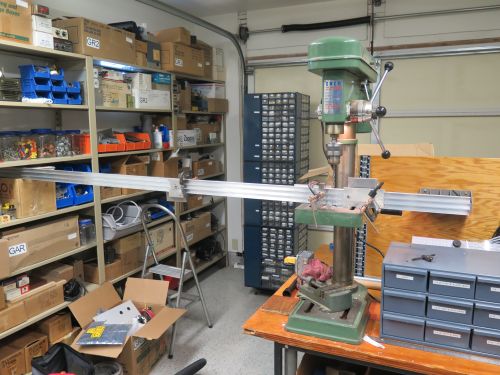Today (or maybe tomorrow, depending on who you talk to) is the 25th anniversary of Borland’s introduction of the Delphi RAD environment for Object Pascal. Delphi changed my life as a programmer forever. It also changed my life as a book publisher for awhile. The Delphi Programming Explorer, a contrarian tutorial book I wrote with Jim Mischel and Don Taylor and published with Coriolis, was the company’s biggest seller in 1995. We did a number of other Delphi books, including a second edition of the Explorer for 32-bit Windows, Ray Konopka’s seminal Developing Custom Delphi 3 Components, and others, including Delphi 2 Multimedia Adventure Set, High Performance Delphi Programming, and the ill-fated and much-mocked Kick-Ass Delphi. We made money on those books. A lot of money, in fact, which helped us expand our book publishing program in the crucial years 1995-1998.
It took OOP to make Windows programming something other than miserable. I was interested in Windows programming from the outset, but didn’t even attempt it while it was a C monopoly that involved gigantic switch statements and horrendous resource files. With OOP, you don’t have to build that stuff. You inherit it, and build on it.
There is an asterisk to the above: Visual Basic had no OOP features in its early releases, and I did quite a bit of Windows BASIC work in it. Microsoft flew a team out to demo it at the PC Techniques offices in late 1990 or early 1991. A lot of Windows foolishness was exiled to its runtime P-code interpreter, and while a lot of people hate P-code, I was used to it from UCSD Pascal and its descendents. What actually threw me back in my chair during the Thunder demo (Thunder being VB’s codename) was the GUI builder. That was unlike anything I’d seen before. Microsoft bought the GUI builder from Tripod’s Alan Cooper, and it was a beautiful and almost entirely new thing. It was Visual Basic’s GUI builder that hammered home my conviction that visual software development was the future. Delphi based its GUI builder on OOP, to the extent that Delphi components were objects written within the VCL framework. I enjoyed VB, but it took Object Pascal within Delphi to make drag-and-drop Windows development object-oriented from top to bottom.
People who came to OOP for the first time with Delphi often think that Delphi was the first Borland compiler to support OOP. Not so: Turbo Pascal 5.5 introduced OOP for Pascal in 1989. Although I wasn’t working for Borland at the time, I was still in Scotts Valley writing documentation for them freelance. I wrote about two thirds of the Turbo Pascal OOP Guide, a slender book that introduced OOP ideas and Object Pascal specifics to Turbo Pascal 5.5 users. A little later I wrote a mortgage calculator product using BP7’s OOP features, especially a confounding but useful text-mode OOP framework called Turbo Vision. I licensed Mortgage Vision to a kioskware vendor, and in doing so anticipated today’s app market, where apps are low-cost but sold in large numbers. I cleared $17,000 on it, and heard from users as late as the mid-oughts. (Most were asking me when I was going to start selling a Windows version. I apologized but indicated I had gone on to other challenges.)
I mention all this history because, after 25 years, a lot of it has simply been forgotten. Granted, Delphi changed the shape of Windows development radically. It did not, however, come out of nowhere.
One of the wondrous things about Delphi development in the late 90s and early oughts (and to this day, as best I know) was the robust third-party market for Delphi VCL components. I used to wander around Torry’s Delphi Pages, marveling at what you could buy or simply download and plug into Delphi’s component palette. I have all of TurboPower’s Delphi VCL products and have made heavy use of them down the years. (They’re free now, in case you hadn’t heard. Some but not all have been ported to the Lazarus LCL framework.) I’ve also used Elevate’s DBISAM for simple database apps, and Raize Software’s DropMaster for drag-and-drop data transfers across the Windows desktop. Those are simply the ones I remember the best. There were many others.
I don’t use Delphi much anymore. I still have Delphi 7, and still use it now and then. The newer versions, no. It’s not because I don’t like the newer versions. It’s because what I do these days is teach “intro to programming” via books and seminars, and I can’t do that with a $1,000 product. Well, what about the Delphi Community Edition? I tried to install that in 2018. The binary installed fine. But the registration process is insanely complex, and failed for me three times for reasons I never understood. Sorry, but that kind of nonsense gets three strikes and it’s out. On the other hand, if I were actively developing software beyond teaching demos, I’d probably buy the current version of Delphi and go back to it. I’m willing to deal with a certain amount of registration kafeuthering, but I won’t put my students through it, especially when Lazarus and FreePascal can teach the essentials of programming just as well.
Nonetheless, Delphi kept me programming when I might otherwise have given it up for lack of time. It allowed me to focus on the heart of what I was doing, not on writing code for user interface elements and other mundane things that are mostly the same in all applications. Back when Delphi was still a beta product, Project Manager Gary Whizin called Delphi OOP programming “inheriting the wheel”. That’s where the magic is, and Delphi is strong magic indeed.











